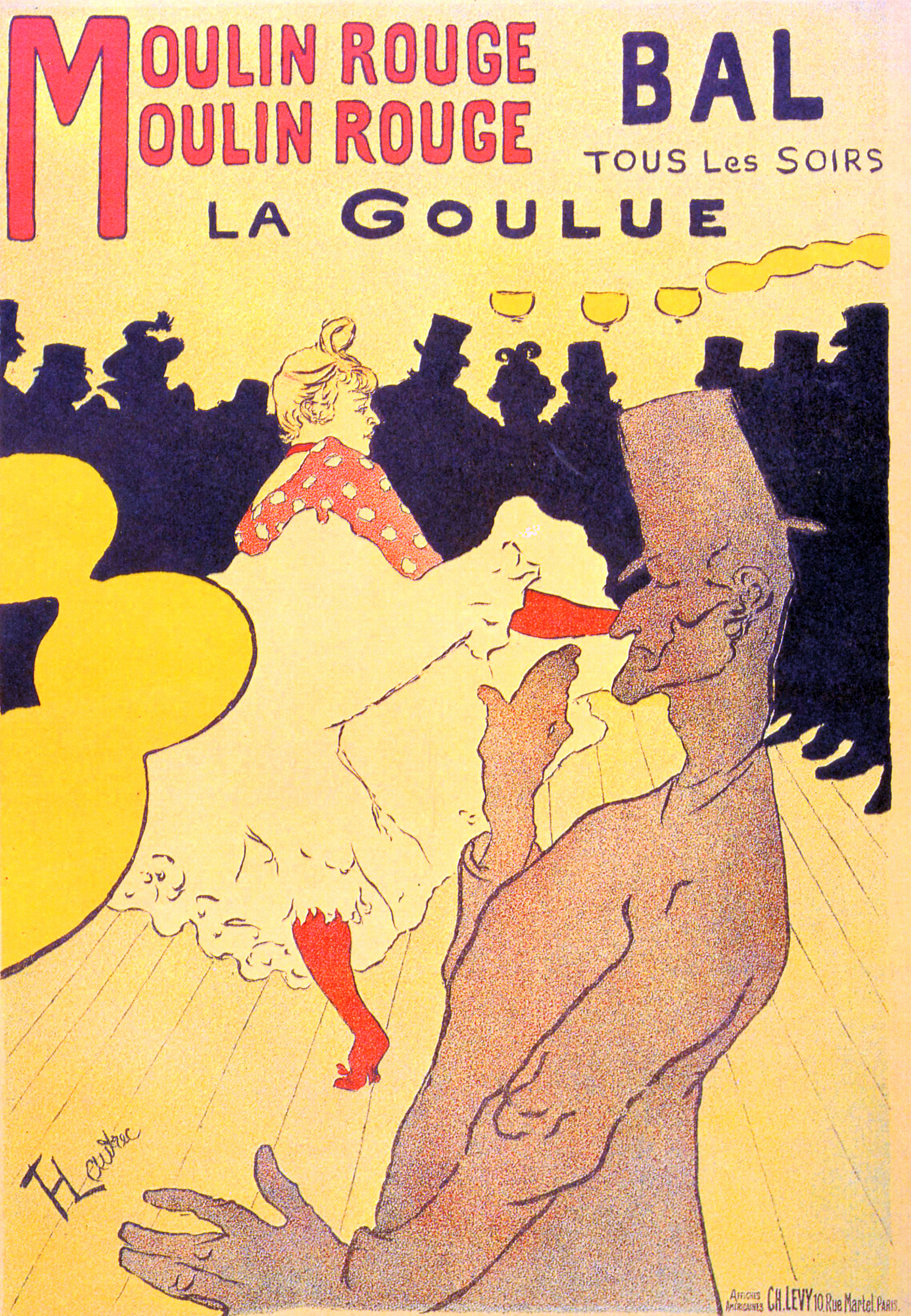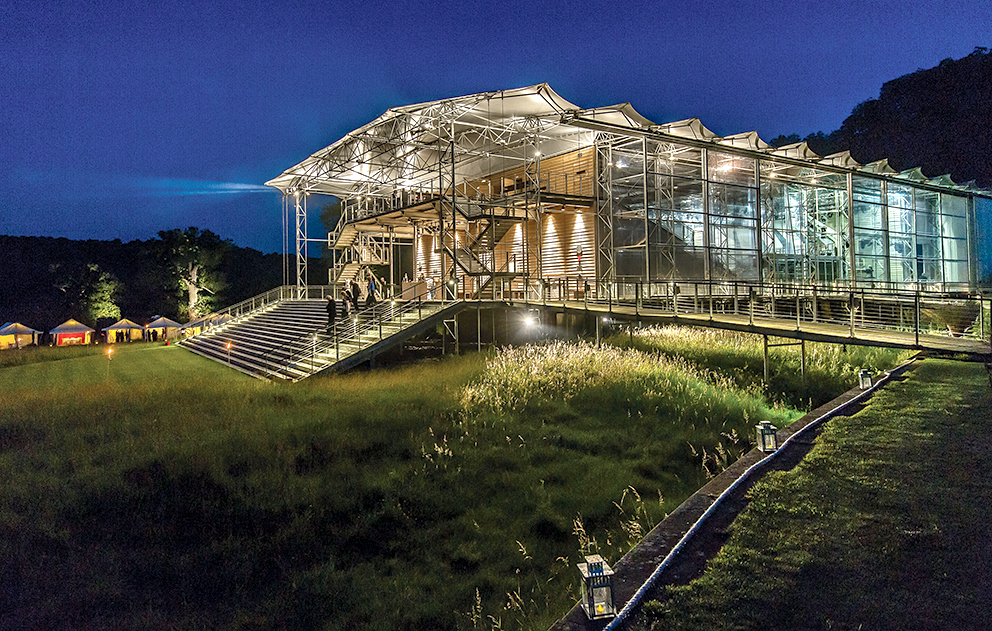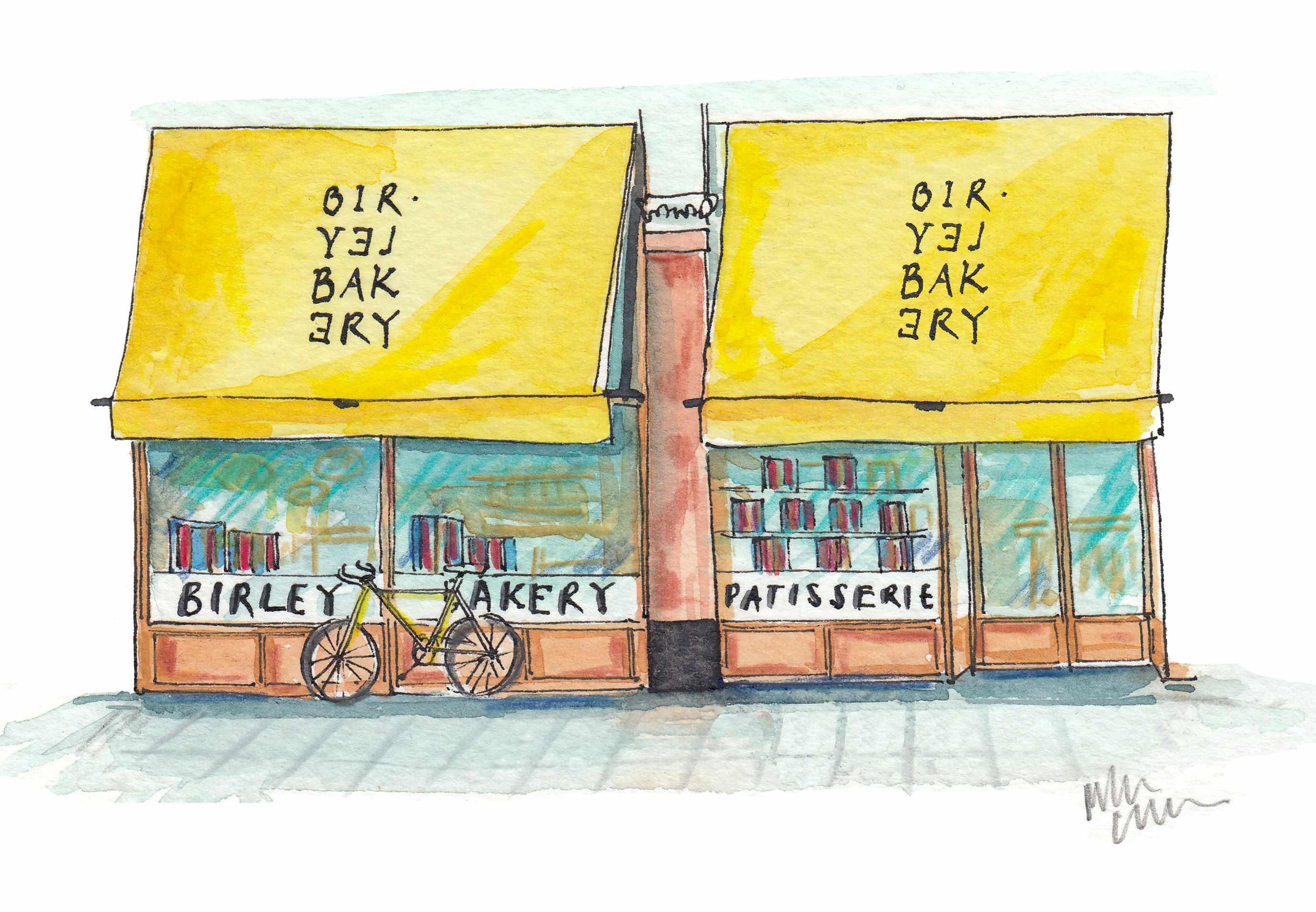Garsington's resurrection of an opera by Offenbach, the man who gave the world the can-can
Offenbach famously created the can-can music, but one of his lesser-known works, Fantasio, will be premiered in Garsington Opera’s 30th-anniversary season. Claire Jackson reports.


Long before the Lindy hop, the foxtrot and the Charleston came the can-can, a high-energy, high-kicking dance that was popular in French music halls in the 19th century. The dancers were required to swoosh their long skirts to gain enough freedom for the kicks, showing their hosiery and pantalettes, as famously depicted by Toulouse-Lautrec. The dance was considered scandalous at the time, not least because undergarments tended to be crotchless.
The movement is inextricably linked to Jacques Offenbach’s operetta Orpheus in the Underworld (1858), which features the classic ‘can-can’ music. Offenbach’s can-can, the Galop Infernal, was actually intended for a different dance (the galop), but its catchy melody and repetitive fast rhythms meant that it perfectly fitted the newly developing dance. The piece sums up the exuberance of the Belle Époque and its place in cultural history has long been established.
However, Offenbach, whose 200th anniversary falls this year, is also credited with another first: Orpheus in the Underworld is the first full-length operetta, a type of light opera that pre-dates musical theatre and directly inspired Gilbert & Sullivan’s theatrical comedies. Offenbach wrote several operettas, as well as operas, many of which drew on the bawdy, erotic themes popularised by the can-can and the Moulin Rouge. The highly charged nature of these stage works attracted widespread criticism — and enormous audiences.
‘Regular opera-goers have seen Così fan tutte 1,000 times, so they’re excited to see something more unusual, such as Fantasio.’
Many of his works are being rescued from the archives this year as part of the bicentenary celebrations. In Cologne, the composer’s home town, a year-long festival is in progress, featuring Orpheus (of course) and Grand Duchess of Gérolstein, an 1867 satire of militarism that was banned in France when the country was defeated in the Franco-Prussian war.
Offenbach may have been surprised that his native Germany is making such a fuss of him, given that he spent most of his working life in Paris, changed his name from Jacob to Jacques and wrote his operas in French. In his adopted city, celebrations include a rare concert performance of Master Péronilla and a revival of Opéra Comique’s production of Madame Favart.
Closer to home, the most notable Offenbach event will take place in Buckinghamshire at Garsington Opera, where the country opera house will give the UK stage premiere of Fantasio. ‘It’s great to have a blank page,’ says director Martin Duncan. ‘It’s very unusual with the opera repertoire, in which, broadly speaking, the same 30 works are done over and over again. Like Orpheus, which I’ve done a few times, Fantasio has text and singing.

Win a night at Garsington Opera plus a two-night stay at Hartwell House
Garsington Opera and Hartwell House are both celebrating their 30th anniversaries – and we've teamed up with them to offer
Sign up for the Country Life Newsletter
Exquisite houses, the beauty of Nature, and how to get the most from your life, straight to your inbox.
‘We’re performing it in English, which works well with the style of the piece; as Fantasio is a comedy, it’s important that the audience understands the lyrics and isn’t distracted by surtitles. Jeremy Sams has written the translation — it’s brilliant, quirky, funny and accessible. Originally, it was in three acts, but we’ve reworked it to fit with Garsington’s two-act format, so that everyone can have their lovely picnic suppers in the middle.’
Fantasio has Mozartian elements of farce, with a fairy-tale context. ‘It’s a fable of sorts,’ explains Mr Duncan. ‘There’s a princess, whose father has arranged for her to marry a prince from another country to avoid a war. One of the court jesters, Fantasio, dies, and a student from the town, who has fallen in love with the princess, assumes the jester’s identity to enter her Court. The work is a bridge between Orpheus, which is a real romp, and the more serious The Tales of Hoffman.’
Garsington has an anniversary of its own: the company, based at the Wormsley estate, home of the Getty family, marks its 30th birthday this summer. Garsington Opera was founded in 1989 by Leonard Ingrams and his wife, Rosalind, at Garsington Manor, near Oxford. Performances were initially open-air and given by a touring opera, but they quickly moved to a structured stage with specially chosen casts.
Not everyone supported the venture. A small group of residents complained about noise disturbance, with one organising a protest during the 1997 performance of Haydn’s Le Pescatrici. In a scene straight from an opera plot itself — or at least from Jilly Cooper’s novel Score! — protesters simultaneously cut lawns, turned on hoses and set off car alarms. For maximum impact, a private plane was chartered to fly overhead.
Councils and courts found no statutory noise nuisance caused by Garsington, but, by 2008, after Ingrams’s death, it became clear that the opera house needed a new space.
‘There were three of us: general director Anthony Whitworth-Jones, myself and Bill Birch Reynardson, who lived locally,’ remembers Nicola Creed, Garsington’s executive director. ‘Bill wrote to all his friends to ask them if they wanted to host opera in their garden. We had responses from more than 40 houses and we visited 30.
‘When we arrived at Wormsley, it felt peaceful and beautiful; we thought it would be amazing to end up here. It was a huge tragedy when Leonard died, although moving to Wormsley has given us the opportunity to raise our game to another level.’

This includes putting on four productions each season, as well as running a Youth Company for local young people aged nine–21 and expanding the remit of the company to include commissioning new works — last year, Garsington premiered The Skating Rink by David Sawyer. Audiences were transported to the Costa Brava in the 1990s and immersed in intrigue and murder, beautifully realised by an eclectic score and highly impressive staging (with actual skating). It was a bold move and it paid off.
‘I think “bold move” sums up quite a lot of what we’ve done over the years,’ agrees Miss Creed. ‘We’ve got an incredible following of supporters who believe in us and know that whatever we put on will be of the highest quality. We could never have embarked on that commission 30 years ago. Now, we have stability.’
Garsington has more than 600 members, who have been with the opera house from the start. ‘A lot of them are regular opera-goers,’ points out Miss Creed. ‘They have seen Così fan tutte 1,000 times, so they’re excited to see something more unusual, such as Fantasio.’
Expect ebullient music and fantastical staging — hang on to your pantalettes.
The Garsington season, which runs from May 29 to July 21, features ‘Fantasio’ (Offenbach), ‘The Bartered Bride’ (Smetana), ‘Don Giovanni’ (Mozart), ‘The Turn of the Screw’ (Britten) and the Monteverdi ‘Vespers’. The estate opens at 3.30pm, the intervals are 85 minutes — to allow time for dinner or picnics — and there’s a bus service from High Wycombe station. Tickets £60–£200 – call 01865 361636 or see www.garsingtonopera.org

Win a night at Garsington Opera plus a two-night stay at Hartwell House
Garsington Opera and Hartwell House are both celebrating their 30th anniversaries – and we've teamed up with them to offer
Country Life is unlike any other magazine: the only glossy weekly on the newsstand and the only magazine that has been guest-edited by HRH The King not once, but twice. It is a celebration of modern rural life and all its diverse joys and pleasures — that was first published in Queen Victoria's Diamond Jubilee year. Our eclectic mixture of witty and informative content — from the most up-to-date property news and commentary and a coveted glimpse inside some of the UK's best houses and gardens, to gardening, the arts and interior design, written by experts in their field — still cannot be found in print or online, anywhere else.
-
 'That’s the real recipe for creating emotion': Birley Bakery's Vincent Zanardi's consuming passions
'That’s the real recipe for creating emotion': Birley Bakery's Vincent Zanardi's consuming passionsVincent Zanardi reveals the present from his grandfather that he'd never sell and his most memorable meal.
By Rosie Paterson
-
 The Business Class product that spawned a generation of knock-offs: What it’s like to fly in Qatar Airways’ Qsuite cabin
The Business Class product that spawned a generation of knock-offs: What it’s like to fly in Qatar Airways’ Qsuite cabinQatar Airways’ Qsuite cabin has been setting the standard for Business Class travel since it was introduced in 2017.
By Rosie Paterson